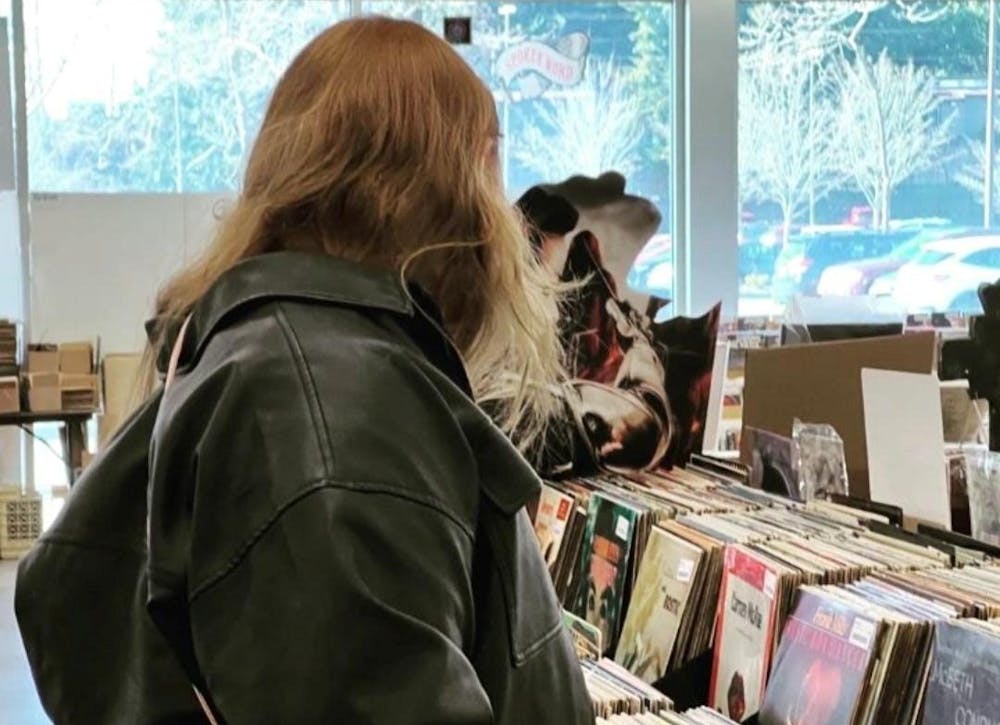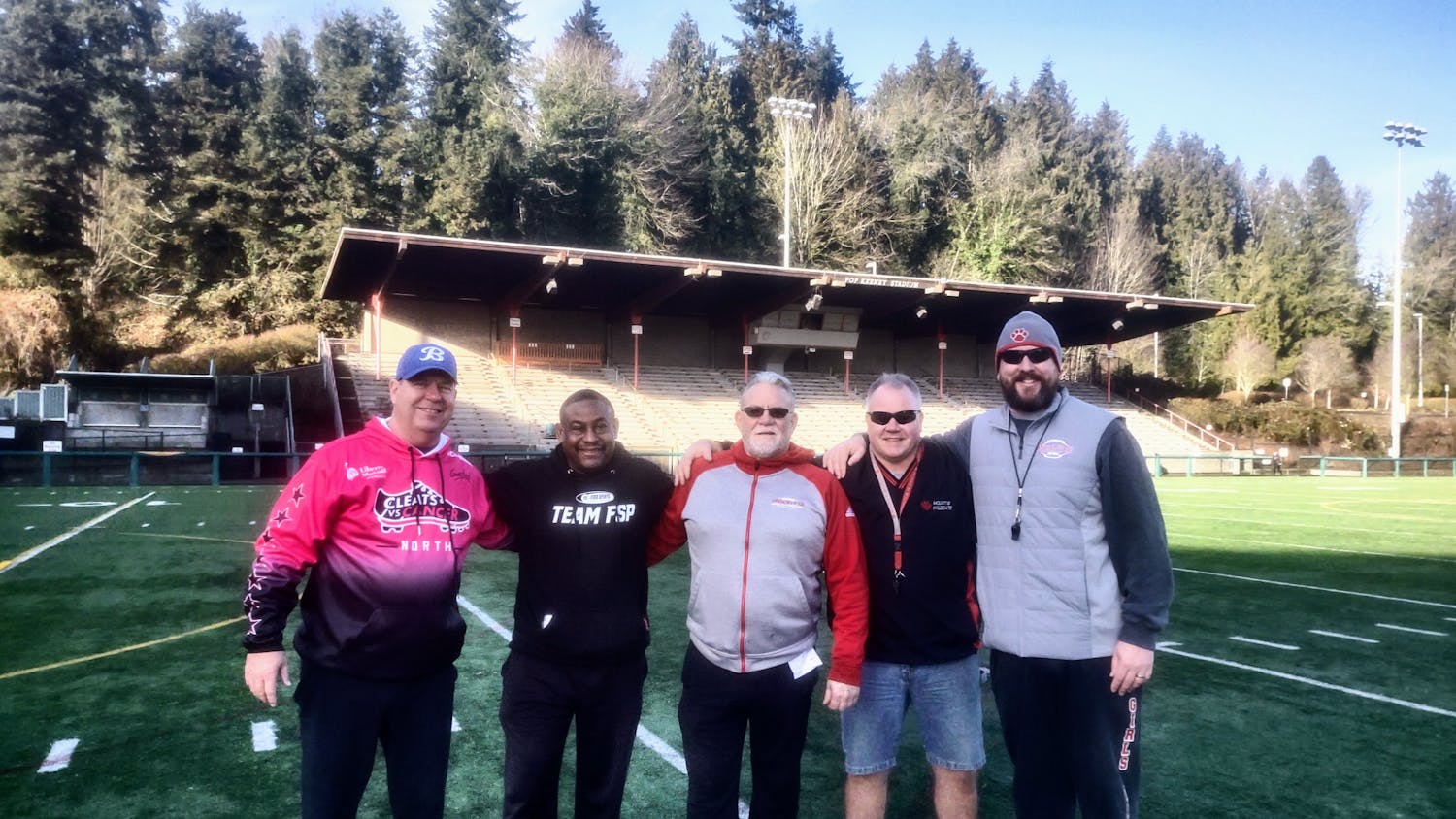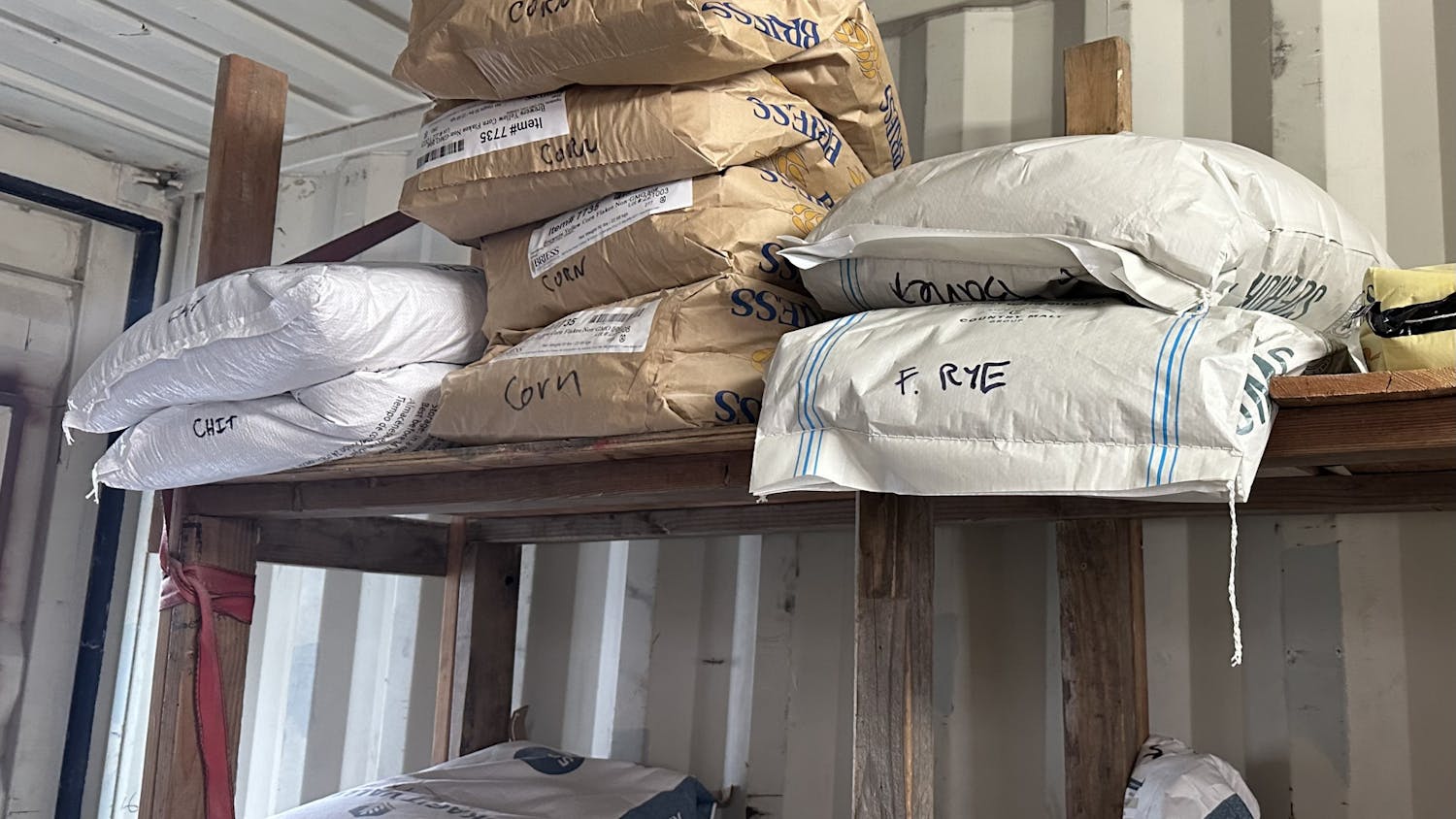I was scrolling through TikTok a few months ago when I first heard the song “Silk Chiffon” by a band called MUNA. I was drawn to its danceability and joyfulness, and I’ve since fallen in love with MUNA and the queer representation it has to offer.
The trio — Josette Maskin, Naomi McPherson and Katie Gavin — were students at the University of Southern California when they met. McPherson produces all of MUNA’s music, plays the guitar and keys and sings backup vocals, Maskin plays the guitar and Gavin plays guitar and sings lead vocals. All three identify as queer, and Maskin and McPherson are nonbinary.
MUNA made headway while opening for Taylor Swift this spring and playing at Coachella on April 15. Sapphics certainly got a boost in visibility this year.
Julia Winther, a student at Everett Community College, is a regular listener of MUNA.
“I really like the way they portray queerness,” Winther said. "It really brings me joy.”
Winther said she doesn’t fit into the cottage-core aesthetic, which is a sapphic stereotype prevalent on social media, and neither do the members of MUNA. Gavin is more feminine, while McPherson and Maskin have more masculine styles.
Winther loves MUNA’s song “No Idea” because of how raunchy it is. Much of sapphic culture is seen as pure and innocent, but “No Idea” is very much the opposite. The chorus starts with the lyrics, “You have no idea, you have no idea / The things I think about you when you aren’t here.”
For Winther, listening to MUNA is an expression of her sapphic identity.
“My family is Christian," Winther said. "I’m not. I spend a lot of time in my life hiding my queerness.”
Music is the truest expression of who someone is as a person. MUNA is the release of that expression for Winther.
Felicia Youngblood is an assistant musicology and music history professor at Western Washington University. She holds a Ph.D. in Musicology.
“People are sharing their voices and that can give a larger voice to a group,” Youngblood said.
It’s true. Fans like myself see their queerness reflected in the band. Gavin, Maskin and McPherson create a space where people can be themselves.
“Musicians have this platform to share this message and have their voices heard and lead by example,” Youngblood said.
Todd Smith, a senior instructor of popular music history, music theory and composition at Western, agreed with Youngblood.
“Regarding queer musicians, I think it’s more socially acceptable to sing about that,” Smith said. “And even artists who you knew were homosexual, you still didn’t hear them talk about it that much.”
MUNA’s music — much like that of pop artists such as Hayley Kiyoko, Willow and Fletcher — is a vehicle for the artists’ queerness, and I can relate to it.
“There’s something for everyone to kind of find and enjoy and identify with,” Smith said.
In MUNA’s “I Know a Place,” Gavin sings about an imaginary place where people are free to be themselves. For me, that place is with other MUNA fans and queer people in general.
Haley Nutt holds a Ph.D. in Musicology and is an instructor at Western. She is a founding member of the Percussive Arts Society Diversity Alliance.
“Pop music really speaks to the time and the place that it is popular, so you can learn, perhaps even more easily than classical music … a lot about what is going on politically, socially, culturally, in that immediate moment,” Nutt said.
When I listen to “I Know a Place,” I think of it as a time capsule. I hope that, someday, LGBTQ+ people will be able to live free from harm. I love the representation MUNA gives me.
“Personally, from a musician, seeing someone that looks like me or has shared identity characteristics is really important,” Nutt said. “I think it boosts people’s confidence and helps people believe in themselves when they can see someone that is acting as a model for them.”
MUNA gives me the fearlessness I need to be myself. As an Asian American gay woman and nonbinary person, seeing people like McPherson, who is half-Black, boosts my confidence. MUNA is representation through sounds that can be enjoyed by anyone.
As the band's producer, McPherson knows how to manipulate the instruments to get their desired sounds. For “Silk Chiffon,” they made a guitar pick out of tape to give the guitar a brighter sound.
Colin Bradford, a singer-songwriter and producer from Seattle, said MUNA’s song “Anything But Me” had precise-sounding production.
“[There’s] not a lot of reverb, not a lot of space, it’s almost like in a vacuum. It’s … a really dry type of mix that really punctuates the bass, the synth bass and the electronic drums that are very danceable,” Bradford said.
Some people may argue that MUNA is just another pop group that will fade into the background, but I think what sets them apart is their songwriting.
Bradford said that most people who make electronic music make beats and write lyrics to fit, but he could tell that McPherson, Maskin and Gavin write the lyrics first and the production comes later.
McPherson, Gavin and Maskin’s songwriting talent is the stuff I live for. I still listen to their music sometimes and catch a lyric that never hit me before.
In the end, what makes me love MUNA is the members’ creativity and unapologetic queerness. Youngblood sees it as political action.
“Just the act of singing about queer love and joy is a form of protest within itself,” she said.
Cordelia Longo (they/them) is a senior at Western majoring in political science. In their free time, you can find them listening to Taylor Swift and asking to pet strangers' dogs.






